
Image: www.freeimages.co.uk
For the serious songwriter, getting a publishing deal is crucial. We asked an industry insider to explain how it works…
 f you want to make a living out of songwriting, writing killer tunes and memorable lyrics is only half the battle. You then need to find a way of getting paid for your efforts, whether you’re recording your songs yourself, or giving them to someone else to record. Which is where a music publisher comes in.
f you want to make a living out of songwriting, writing killer tunes and memorable lyrics is only half the battle. You then need to find a way of getting paid for your efforts, whether you’re recording your songs yourself, or giving them to someone else to record. Which is where a music publisher comes in.
Essentially, a music publisher is there to protect your copyright in the songs you write, and collect the monies which you’re owed whenever your songs are recorded, performed or broadcast. In the case of successful artists, they may also publish sheet music and songbooks, although these days this (the original) function of a music publisher is usually taken care of by separate, specialist firms.
The laws regarding copyright and intellectual property are complicated to say the least, and vary hugely from one country to another. Here at Songwriting we are not lawyers, and we have readers all over the world, so we’re not in a position to offer any advice! What we did recently find ourselves in a position to do, however,, was talk to Jess Hamilton, A&R manager at Imagem Music UK, the world’s biggest independent music publisher.
Imagem’s roster includes artists as diverse as Ludacris, MIA, Chris Rea, and Bombay Bicycle Club, putting Jess in the perfect position to explain how publishing works from the songwriter’s point of view. So without further ado, here’s what she had to say…

Jess Hamilton
Can you start by telling us, in your own words, what publishing actually involves?
“What we do, at a very basic level, is protect your copyrights. In the case of music publishing this means your songs. We make sure that all of your songs are registered with all the various collection societies and when songs start generating income we make sure that you are paid properly. We also issue licences for your music and help with advances so that as a writer you can invest in new equipment, and afford to take the time and space to focus on creativity.
“But there’s a lot more to the world of publishing which involves a great deal of creativity, from discovering and signing talent, to nurturing the careers of songwriters and promoting your music through several avenues to the wider world.”
What kind of promotional help can you offer?
“On an A&R level we get involved in pitching your songs to artists who are making records and setting up writing sessions with the artist . We work with songs all day, know about songs, trends and spend a lot of time talking to other areas of the industry, so we’ve got a pretty good idea of what record label A&Rs are looking for.
“On a synch level we open up opportunities to write film scores and scripts and then we pitch songs directly to film and TV companies, ad agencies and other ways of exploiting music through brand partnerships, new innovative online campaigns and such.”
Some readers may not be clear on the difference between ‘publishing’ and ‘copyright’. Can you explain that?
“They’re very much tied up with each other. As a writer you automatically own the copyright in your work; when you do a publishing deal, you license or assign the copyright to the publisher. Some of the song uses are dealt with by collection societies, such as PRS (Performing Rights Society) with respect to performance and MCPS (Mechanical Copyright Protection Society) with respect to record sales. As we publishers have relationships with those agencies and collect the royalties you are owed on your behalf. We keep on top of PRS and distribute money to the songwriters.”
“We work on a very hands-on level with our writers”
What does your work on the A&R side of things involve?
“In our company, we’re quite a small and close-knit team who work on a very hands-on level with our writers and artists. We scout talent via word of mouth, internet, gigs and relationships built through years of experience. Once we have signed an artist or writer we sit down and discuss ways that we can nurture their careers, set up recording and writing sessions for them, pitch songs they want us to pitch to artists that are making records. We work closely with record labels and management companies at every stage of the record-making process with our active songwriters and it is also our job to know the catalogue we represent inside out, so as well as suggesting obvious hits, we can also help dig out unknown and obscure songs for artists to cover.”
So if a Songwriting reader wanted to get a publishing deal, how would they go about it?
“There are lots of ways it can work. I’ll be honest, in my experience it’s tough for someone to get a publishing deal (especially within a major company) if they’re just writing songs in their bedroom and putting them in the post to the A&R department of a publisher. Then again, if you hear a complete gem… it can happen.
“The first step is to get a lawyer”
“But in most instances… say you’re just starting out but you’ve written 100 or so songs. I’d say the first step is to get a lawyer: you can’t sign a publishing deal without one anyway, and if you can get a lawyer who knows the music industry you’d be surprised how helpful they can be! Get a lawyer, maybe get a manager, and start building your network and relationships within the industry.
“These days of course you’ve got the internet as well, which is great for visibility and if you’re clever you can use that to your advantage.”

Imagem artist Cathy Dennis
So what advice would you give that hypothetical songwriter/Songwriting reader?
“I’d say as well as getting a lawyer and/or manager, get a site going where you can promote your songs, find some new and unsigned artists you love and get in touch with them, there is no harm in approaching signed artists too – nowadays artists often communicate directly with their fans via the web, whether it be via Facebook, Soundcloud, Twitter and all the other channels we have now. Many of the scouts at record companies and publishers also spend a lot of time on the internet searching blogs and the above sites. Go to as many gigs as you can and meet as many people as you can… you never know what can happen.”
And if someone does get a publishing deal, what can they expect from you?
“We like to get involved in people’s careers very early on and really help make plans for a long-term career. I personally worked in songwriter management before I came to work here, so I tend to be quite hands-on with the songwriters I work with. People think we just collect the royalty monies and hand out cheques but we’re a lot more hands-on than that!
“But as I said, the people who get into that position, they’ve probably already been working with other people, they’ve been proactive and got themselves involved. You have to put the time in, find out what works and what doesn’t, make some contacts. Then, we can bring our contacts and knowledge to the table, get you working with other people, and get you to the stage where record companies will take you seriously and consider your songs.
“A good writer can forge a lucrative, long-term career”
“The good thing about publishing, from the artist’s point of view, is that it’s a long-term relationship. If you are signed to a label and your record doesn’t sell in the way that they hoped, artists and bands often get dropped. Or they go out of fashion and it becomes harder to make a living from performing. But if you’re a good writer then you can forge a career that can be incredibly lucrative and long-term. Cathy Dennis who is signed to us is a good example of someone who was an artist and then went on to write some hugely successful pop songs such as Can’t Get You Out Of My Head.”
What artists are you currently working with?
“My first signing when I came to Imagem was Flo Morrissey. She’s a 19-year-old artist who writes her own material and makes all her own videos… she’s amazing, she’s only been writing songs since she was 15 but if you heard them you’d think she’d lived through hundreds of heartbreaks. She definitely knows how to write a song – she’ll be writing songs the rest of her life. She’s very ethereal… kind of [60s folk singer] Karen Dalton meets Kate Bush and she recently signed her first record deal too.

Imagem artist Flo Morrissey
“I’ve also just signed a writer called Stevie Solomon… he’s an absolutely incredible musician who’s been in bands and worked behind the scenes for a few years, but he’s just launching his solo career as an artist called Bixby, and he’s also part of a dance project called Akron Fly as well as writing for other artists. It’s very soulful stuff, he has the most amazing voice and he plays all the instruments on his records as well.
“And as a team we signed Cathy last year. Completely the opposite end of the spectrum because she’s very established and she is brilliant.”
Finally, what would you say are the best and worst things about your job?
“The best part is that you get to listen to music all day and see so much live music! You get a chance to discover new music and give creative people the opportunity to do what they’re good at and what they love doing. Helping people in their careers can be very rewarding, especially when it’s someone whose music moves you.
“I can’t really think of a ‘worst’ thing! [Pause] Having to reject people, I suppose. You know, someone writes a song and it’s their creation, it can be very hard to have that song knocked back. Even once you are signed to a publisher, and a record label say their artists is going to record a particular song, and then they decide they don’t want to after all, or they do and the record never gets released, or it does and it doesn’t go to radio.. it’s a long process and I’m the one that has to break that news to the songwriter. That can be heart-breaking for the writer, so that’s one part of the job I don’t enjoy.”
For more information on Imagem Publishing, visit their website. And if you have any advice for other Songwriting readers based on your own experiences with publishers, then share your knowledge in the Comments section below!




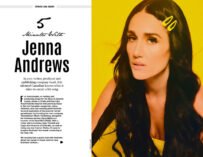
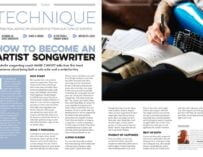



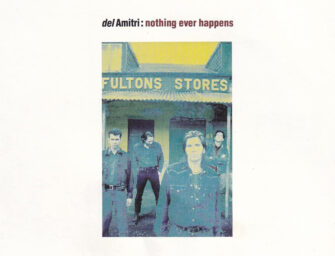

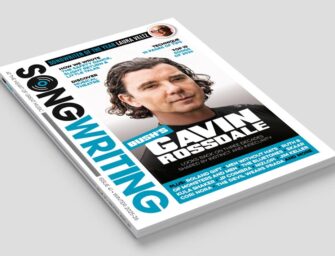
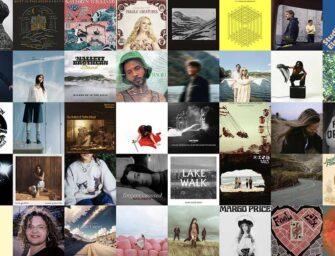




















This was a very nice read.
Hi
I need some impartial opinions on my song writing and whether I should try to pursue it professionally.
I have my current song in dropbox
Just moved to Bristol